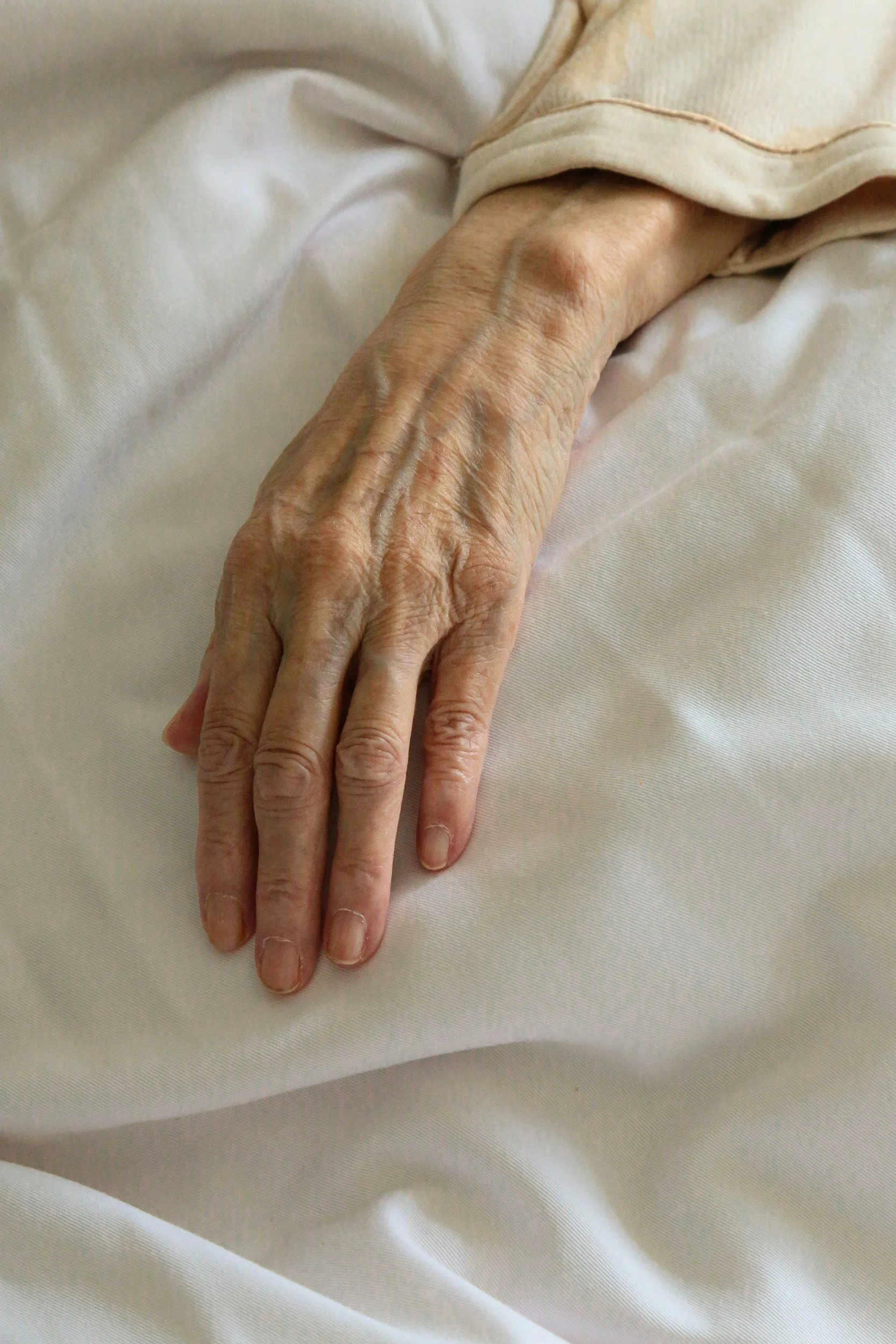Milk Teeth
For years, I kept my children’s teeth in a drawer. Wrapped in a rainbow silk, I tucked them behind the protection of scarves and mismatched socks. In preparation for a move to a new life, our belongings would sit in the liminal land of a storage unit. It didn’t feel right to put the bundle of teeth in the cardboard box behind bars. It didn’t feel right to part with them. Nothing felt right. But one by one, I did what everyone encouraged me to do. I threw the past away. When the house was finally bare, the walls hung hollow-white and echoed like bones. The black garbage bags by the picket fence overflowed with loss.
I remember how small their teeth looked in the center of my palm, a snow-kissed mountain peak, a riverbed of red. Flipped over, an entire root system lay dislodged, exposed to air for the first time, like a newborn. We created a ritual around losing teeth, like new parents do. Before sleep, the boys dropped their tiny calcium stones into a mason jar of water. They leaned in to listen to it land on the glass seabed. Plink. At night, we adults played fairies and squeezed drops of food colouring into the jar. Through the shadows of the moon, we watched the inky pigments part and spin in the translucent expanse before settling like a blanket of light. Then, like a fisherman’s hook, the jewel was snatched, and a silver coin dropped in its place. Plunk. At daybreak, the boys would gasp and call out from their beds- it was a green fairy! Or, she had blue wings! Orange! The colour of the water revealed the magic of her wings. The tooth gone.
After we moved from the house of loss, teeth kept falling, row by row. At intervals, the boys came home from school with Kleenex stuffed pockets. We unwrapped the bundles on the kitchen table, careful not to lose the minuscule pearls, deep in their clams of bleached paper. The teeth were bigger now, but they always found a way to connect to their loss. Cradled in their hands, they paused to linger in the disbelief at a treasure that no longer served a purpose, the absent space along their gums, already pushing up new beginnings.
Eventually, there was no need for pretense of a fairy, what they really wanted was the coin, not the rainbows. I left myself Post-It notes on the bottom of the stairs: Tooth Money! Perhaps it was a sign I’d grown distracted. That magic had left all of us, Peter Pan’s voice long gone through cracks in the heritage house windows. But after placing a coin on their pillows, when I dropped the tooth in the garbage can, I always stuck my hand in (regardless of the smell) and covered it up. I didn’t want them to ever see their teeth discarded in the trash. There was something unholy about their jewels discarded alongside the black speckle of banana peels, like an unmarked grave. Did good mothers keep the teeth? Was I insensitive, or too sensitive in hiding what I’d done?
What did my mother do? I don’t remember a ritual alongside the money, but I was so full of magic that I would never have wanted her to play fairies with me. I knew fairies were real, and somehow, I always knew she was mortal. I only remember the metallic taste of rust under my tongue, the gushy hollow of a wound that took days to heal. The wriggling last threads that kept me attached to a childhood I never wanted to let go of. The jokes of strings and door jams that made everyone laugh made me cry. If a tooth fell out at school, I’d bundle my loss with toilet paper like an Egyptian mummy and count the hours until I could put it in the safety of my mother’s hands. She would know what to do. She would grieve with me. I wish I could ask her, what did you do with my teeth? Did you collect them for years then part with them in the end? Perhaps they were hiding somewhere in the trash bags we filled just days after she died. As a mother, will I forget how it felt to hold the weightless calcium gems in the centre of my palm? Will I regret what I can never have back?
-Rayya Liebich
Rayya Liebich (she/her) is a Canadian writer and educator of Lebanese and Polish descent. She is the author of the award-winning chapbook Tell Me Everything (Beret Day Press) and full-length poetry collection Min Hayati (Inanna Publications). Passionate about writing as a tool for transformation and changing the discourse on grief, she is currently obsessed with nonlinear forms of CNF and completing a hybrid memoir on her simultaneous experience of motherhood/mother-loss. A finalist in 7 CNF contests in the past two years including the CBC Nonfiction Prize, she is the 2022 winner of The International Amy MacRae Award for Memoir, and, The Federation Of BC Writers Literary Contest. www.rayyaliebich.com





